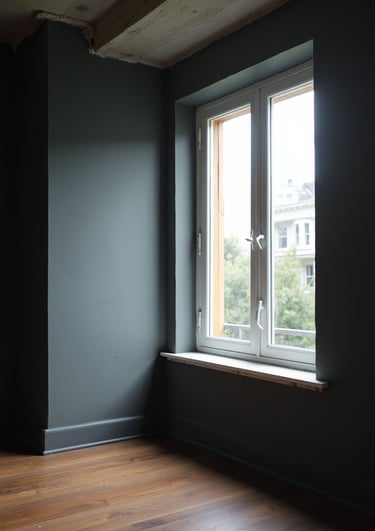Enjoy exclusive discounts on our stylish windows!
5 Reasons Why uPVC Windows Are Ideal for Commercial Buildings
5/2/20252 min read


Introduction to uPVC Windows
When it comes to enhancing the structural integrity and aesthetic appeal of commercial buildings, one of the most crucial considerations is the type of windows used. uPVC windows, made from unplasticized polyvinyl chloride, are increasingly becoming the preferred choice for modern architectures. This article discusses five compelling reasons why making the switch to uPVC windows is beneficial for commercial properties.
1. Durability and Longevity
One of the standout features of uPVC windows is their exceptional durability. Unlike traditional wooden windows that may warp or rot over time due to moisture and temperature changes, uPVC windows are resistant to such deterioration. This resilience not only prolongs the lifespan of the windows but also reduces maintenance costs significantly, proving to be a wise investment for commercial buildings.
2. Energy Efficiency
The energy efficiency of uPVC windows is another vital reason for their growing popularity. These windows are designed to minimize heat transfer, which helps maintain a consistent indoor temperature. By improving insulation, uPVC windows enable commercial buildings to reduce energy consumption, resulting in lower utility bills. This aspect is particularly beneficial in today’s economy, where energy costs are continually on the rise.
3. Aesthetic Appeal
Commercial buildings often need to make a strong impression, and the choice of windows significantly contributes to the overall aesthetic appeal. uPVC windows come in various styles and finishes, allowing architects and building owners to select options that complement the design of the building. Whether it's a sleek modern look or a classic finish, these versatile windows enhance the building’s façade, thereby attracting more clients and customers.
4. Sound Insulation Properties
In urban settings, noise pollution can be a significant concern for businesses. uPVC windows provide excellent sound insulation, which helps create a quieter and more conducive environment for work. By blocking out external noise, these windows contribute to increased productivity and a better overall experience for both employees and clients visiting the commercial space.
5. Cost-Effectiveness
Lastly, from a financial standpoint, uPVC windows are an economically sound choice for commercial buildings. Their low initial cost, paired with reduced maintenance and energy savings, means a lower total cost of ownership. Many commercial property owners find that the investment in uPVC windows pays off quickly, making them a practical choice for business ventures.
Conclusion
In summary, uPVC windows are an excellent choice for commercial buildings for multiple reasons, including their durability, energy efficiency, aesthetic appeal, sound insulation properties, and cost-effectiveness. As the commercial sector continues to evolve, incorporating uPVC windows may very well be a strategic decision that benefits business owners in the long run.
Contact us to Explore the Range of UPVC Windows & Doors
info@astrapia.net
08069409604
© 2025. All rights reserved.
24x7 CUSTOMER CARE NO:
Bengaluru
Belagavi
Nagpur
Bhubneswar
Head-Office
# 38, Nanjappa Layout,Somashettihalli,Bengaluru - 560090
